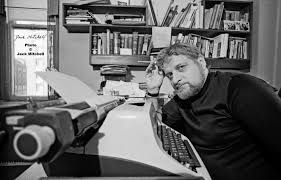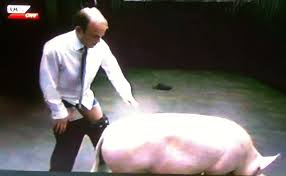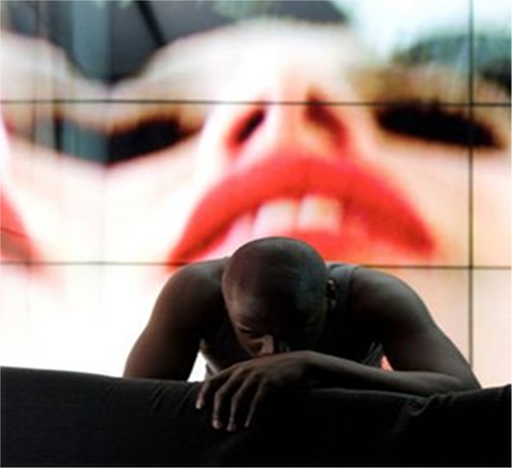It’s tough being Paddy Chayefsky these days. Charlie Brooker, the brilliant satirist behind Black Mirror, comes closest. If he doesn’t make it all the way there, it’s not because he’s less talented than the Network visionary; it’s just that the era he’s working in is so different. I’ve read many articles about Brooker’s impressive program and pretty much all of them miss the point I believe he’s making about our brave new world of technology. That includes Jenna Wortham’s recent New York Times Magazine essay, which referred to Mirror as “functioning as a twisted View-Master of many different future universes where things have strayed horribly off-course.” The Channel 4 show is barely about the future. It’s mostly about the present. And it isn’t about the present in the manner of many sci-fi works, which create outlandish scenarios which can never really be in the service of telling us about what currently is. Brooker’s scenarios aren’t the exaggerations they might seem at first blush. In almost no time, our hyperconnected world delivers something far more disturbing than his narratives.
Chayefsky and Andy Warhol and Marshall McLuhan could name the future and we’d wait 25 or 50 years as their predictions slowly gestated, only becoming fully manifest at long last. None of that trio of seers even lived long enough to experience the full expression of Mad As Hell of 15 Minutes of Fame or the Global Village. Brooker will survive to see all his predictions come to pass, and it won’t require an impressive lifespan.
Consider the initial episode, “The National Anthem.” In this installment, the British Prime Minister is blackmailed by an unknown terrorist into having sex with a pig on live TV in front of a gigantic worldwide audience. It’s supposed to be a shocking media event that unfolds before a rapt world, but the most surprising thing about it is that more people don’t time-shift it. About three years after “Anthem” aired, ISIS released its first beheading video, marrying Hollywood torture porn to real-life extremism, and millions of curious people pressed play. Ah, for the simpler days of pretend PM-on-pork penetration.
Another episode, “Fifteen Million Merits,” offered a similar example of the future arriving fast on the heels of a seemingly outrageous provocation. “Merits” creates a world in which humans are reduced to automatons, forced to ride stationary bicycles to provide power the world desperately needs, the riders soothed by drugs and apps and pornos they can purchase with merit points earned by pumping pedals. One of the disconsolate workers not fully anesthetized by the sensory overload, Bing, offers his points to a beautiful coworker, Abi, so that she can buy a ticket to compete on Hot Shots, an even-more-offensive version of American Idol, hoping to become a pop star and escape a life of drudgery. She walks into a latter-day dance marathon where they don’t only shoot horses but the riders as well. Abi doesn’t realize her version of stardom and is instead shunted into pornography, another body offered up to appease an unwittingly depressed populace. Last year, just three years after this episode aired, the Fappening arrived one weekend on screens in our pockets, a hacked sex show sent to distract and titillate the world. One of the victims of the breach was the British actress Jessica Brown Findlay, who had portrayed Abi in “Merits.” Again, technology enabled the so-called future to arrive before the prophecies had been digested, and it looked even uglier than dystopic fiction.
And that’s how things are now. Before Brooker (or anyone else) can fire a warning shot, before we can decide how to proceed, tomorrow is already moving in for the kill, a drone at our doorsteps that may be delivering takeout or, perhaps, a bomb. If you hurry, there’s still time to smile into the camera. We’re all pioneers now, constantly, without traveling anywhere, without moving a muscle. We live only in the past and present, the future hardly existing. That’s what Black Mirror is really about.•



